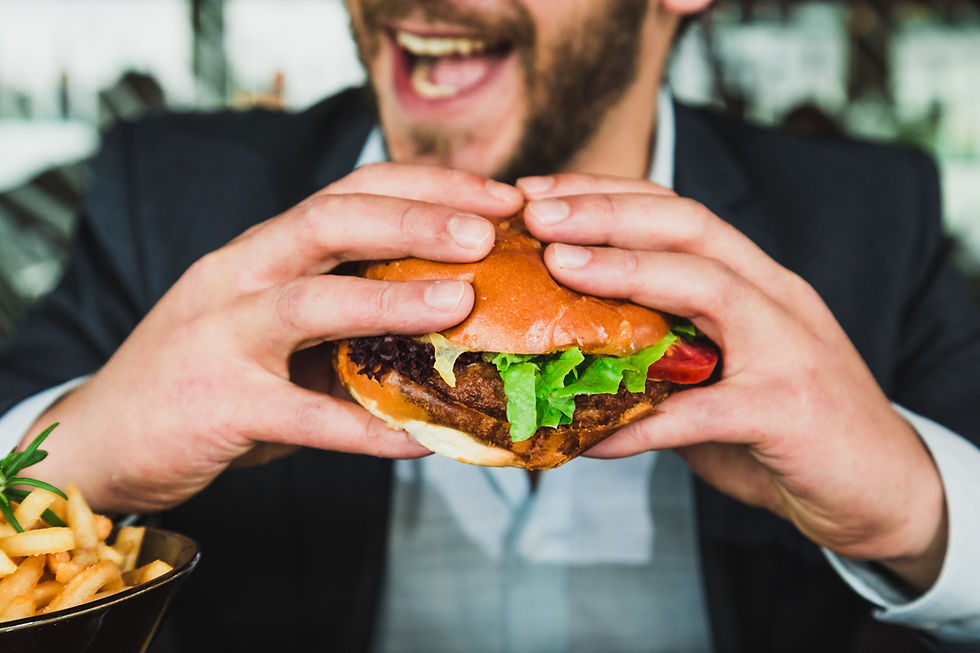The Neurochemistry of Food Cravings

Dopamine and Pleasure
Dopamine, often referred to as the “pleasure chemical,” plays a crucial role in our brain’s reward system.
When we eat foods high in sugar, salt, or carbohydrates (such as hyperpalatable processed foods), our taste buds send signals to dopamine-producing cells in the brain.
The release of dopamine occurs in a brain region called the nucleus accumbens, leading to feelings of pleasure and reward.
The Problem with Hyperpalatable Foods
While experiencing pleasure from natural amounts of sugar, salt, and carbohydrates is normal, consuming highly concentrated flavor enhancers can lead to issues.
For instance, processed foods often contain excessive sugar. A glass of orange juice, for example, can have more sugar than a can of soda!
Repeatedly triggering dopamine surges by consuming these foods can cause a decrease in dopamine levels over time.

Strategies to Manage Food Cravings
1. Mindful Eating:
Pay attention to hunger cues and eat slowly. Mindful eating helps you recognize when you’re genuinely hungry versus craving certain foods.
2. Balanced Nutrition:
Include a variety of nutrient-dense foods in your diet. Balanced meals can reduce intense cravings.
3. Healthy Substitutions:
Swap processed snacks for whole fruits, nuts, or yogurt.
Opt for whole-grain bread instead of refined white bread.
4. Stay Hydrated:
Sometimes thirst can be mistaken for hunger. Drink water throughout the day.
5. Get Enough Sleep:
Lack of sleep can increase cravings for unhealthy foods.
6. Manage Stress:
Chronic stress can lead to emotional eating. Practice relaxation techniques.
7. Chew Gum:
Chewing gum can distract you from cravings.
8. Physical Activity:
Regular exercise can reduce cravings and improve mood.
9. Plan Ahead:
Keep healthy snacks readily available to avoid reaching for unhealthy options.
10. Avoid Extreme Restrictions:
Depriving yourself of favorite foods may intensify cravings. Allow occasional treats.
11. Identify Triggers:
Recognize situations or emotions that lead to cravings.
12. Seek Support:
Consider talking to a registered dietitian or therapist for personalized guidance.
Remember, managing food cravings is about finding a balance. By addressing both psychological and physiological factors, you can make choices aligned with your health goals. 😊🍎🥦
Need a supportive community, accountability partner, nutrition coaching or group fitness training? Contact us today!!! 💪🏾🏋️♂️🥩

Comments